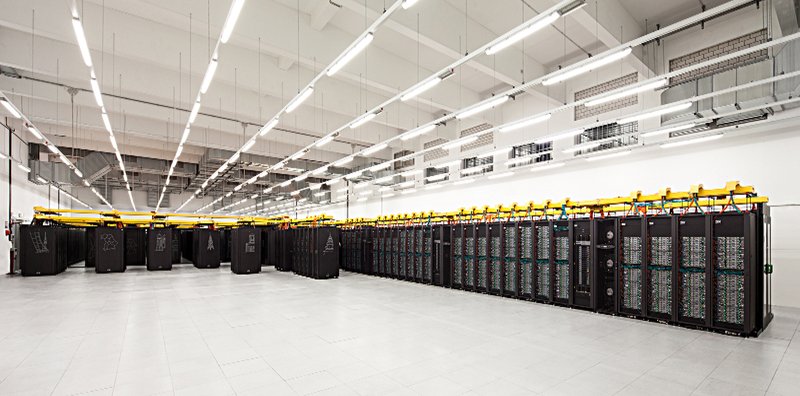
Lenovo ‘largest supplier’ of components to world’s fastest supercomputers
Lenovo says it is now the world’s largest supplier of supercomputing parts to the Top500, which refer to a list of 500 of the world’s most powerful supercomputers.
Lenovo Data Center Group was recognised as the leading supplier at the recent International Supercomputing Conference, in Frankfurt, as measured by the number of systems ranked on the Top500 list.
No fewer than 117 of the 500 most powerful supercomputers included in the Top500 are Lenovo installations, meaning nearly one out of every four systems (23.4 percent) on the prestigious list is a Lenovo solution.
Kirk Skaugen, president of Lenovo Data Center Group, says: “Last year, we set a goal to become the world’s largest provider of Top500 computing systems by 2020. We have reached that goal two years ahead of our original plan.
“This distinction is a testament to our commitment to prioritize customer satisfaction, deliver cutting-edge innovation and performance and be the world’s most trusted data center partner.
“We are motivated every day by the scientists and their groundbreaking research as we work together to solve humanity’s greatest challenges.”
Lenovo’s high-performance computing customer base is as diverse as it is wide, with 17 of the top 25 research universities and institutions across the globe now powering their research with Lenovo’s comprehensive HPC and AI solutions.
Lenovo, with dual headquarters in Morrisville, NC, USA and Beijing, China, enables ground-breaking research in over 160 countries in the world and in many fields including cancer and brain research, astrophysics, climate science, chemistry, biology, artificial intelligence, automotive and aeronautics, to name a few.
Examples of Lenovo’s innovative supercomputer system designs and the research they enable include:
Italy: Cineca – Largest computing center in Italy; The Marconi Supercomputer is among the world’s fastest energy-efficient supercomputers; Research projects range from precision medicine to self-driving cars.
Canada: SciNet – Home to Niagara, the most powerful supercomputer in Canada; First of its kind to leverage a dragonfly topology; Researchers have access to 3 petaflops of Lenovo processing power to help them understand the effect of climate change on ocean circulations.
Germany: Leibniz-Rechenzentrum (LRZ) – Supercomputing center in Munich, Germany; Lenovo’s Direct to Node warm water cooling technologies have reduced energy consumption at the facility by 40 percent; Scientists conduct earthquake and tsunami simulations to better predict future natural disasters.
Spain: Barcelona Supercomputing Center – Largest supercomputer in Spain; Voted “World’s Most Beautiful Data Center” by DatacenterDynamics; Scientists are using artificial intelligence models to improve the detection of retinal disease.
China: Peking University – The first supercomputer in China to use Lenovo’s Direct to Node warm water cooling technology; Scientists are using Lenovo systems to conduct world-leading life science and genetics research.
India: The Liquid Propulsion System Centre (LPSC) – Research and development center functioning under the Indian Space Research Organization; Using Lenovo’s Direct to Node warm water cooling technology to develop next-generation earth-to-orbit technologies.
Denmark: Vestas – The largest supercomputer in Denmark; Winner of HPCwire’s “Reader’s Choice for Best Use of High-Performance Data Analytics”; Vestas is working to make wind energy production even more efficient by collecting and analyzing data to help customers pick the best sites for wind energy installations.
Madhu Matta, vice president and general manager of HPC and AI at Lenovo Data Center Group, says: “Lenovo has an industry-leading ability to bring deep innovations and a comprehensive approach to execute on the largest scale and highest performance, working with our customers to design supercomputing systems that meet their needs in terms of design and compute power.
“This flexibility and customer-first attitude positions us well for future growth in the high-performance computing and artificial intelligence markets.”
To further enable customers to increase performance and simultaneously reduce electrical consumption, Lenovo also announced Neptune – its holistic, three-pronged approach to liquid cooling technologies – this week at ISC.
Neptune encompasses the company’s entire suite of liquid cooling technologies including Lenovo’s Direct to Node warm water cooling, rear door heat exchanger and hybrid Thermal Transfer Module solutions, which combine both air and liquid cooling to deliver peak or high performance for HPC, AI and enterprise customers.


